Living Recovery Out Loud: Addiction and Harm Reduction
One story of addiction in the Statesboro community and how to help yourself if your alcohol or substance use is becoming a problem.
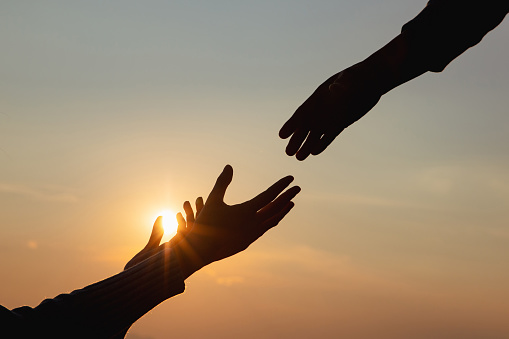
https://www.istockphoto.com/photo/giving-a-helping-hand-gm1396076485-450953331?utm_source=unsplash&utm_medium=affiliate&utm_campaign=srp_photos_top&utm_content=https%3A%2F%2Funsplash.com%2Fs%2Fphotos%2Frecovery&utm_term=recovery%3A%3A%3A
The story of addiction is one that is all too common. Those who have been affected by this illness personally or who have loved ones that have dealt with substance dependency know that it can be painful, destructive and often deadly.
Alcohol and marijuana use are closely associated with college life and Georgia Southern’s often receives notoriety for a party culture. So, it may surprise some people to find that Statesboro is home to a large number of recovery programs, support groups and resources for addiction recovery.
Sydnee Hardee’s Story
Sydney Hardee is a recovery coach in Statesboro at Freedom Through Recovery (FTR), the Susan Ford Recovery Community Organization, and has been fighting her own battle with the disease of addiction since early adolescence.
Alcoholism and substance use disorder “runs rampant” in both sides of her family and Hardee recalled having her first alcoholic beverages in her childhood. She also began using marijuana frequently after trying it and having what she called an “Aha moment”.
“I felt pretty. I felt funny. I felt smart. I felt like I didn’t care what other people thought of me or even what I thought of myself,” Hardee said.
She began dealing with feelings of inadequacy and insecurity by using marijuana and alcohol. Hardee said that on the outside, things looked fine. She participated in extracurriculars and excelled in academics, but she began receiving repercussions for her substance use in high school.
“I was arrested at 16 and my mom was just totally shocked,” Hardee said, “I had made everything look so good.”
At 18, Hardee began her journey into recovery, a decades-long battle that she said has been filled with grief and difficulties. Like many others who are dealing with addiction and are in recovery, hers has not been a straightforward journey. As her circumstances changed, so did her substance use and she began using harder drugs like heroin, cocaine and methamphetamine.
“My substance use progressed and progressed until I finally found myself at a point where I was going to die and I realized that I didn’t want to die,” Hardee said..
At 28 years old, Hardee came to Statesboro for treatment at Willingway. Here she found a supportive community and later began working in peer support at FTR. In doing so, she had another “Aha moment” in realizing that her recovery was about helping other people through the battle of addiction.
“We believe that connection is the opposite of addiction,” Hardee said.
A difficult part of recovery is often learning new ways to connect with people outside of substance use. FTR helps bring people together through events such as the Festival of Hope, art education through the Averitt Center, recreational activities, recovery meetings and collaboration with other organizations including Georgia Southern’s Center for Addiction Recovery (CAR).
Hardee believes that the ultimate gift of recovery is having life, and sharing this message with others has been an integral part of her own journey.
“I live my recovery out loud so others don’t die in silence,” Hardee said.
Reducing the Risks
Alcohol and substance use are often unavoidable components of college culture and the society we live in. Aside from making the good times better, some people feel as though they can also make the bad ones bearable, as Hardee stated. Some people, however, experience the gut feeling that maybe this isn’t what they should be doing.
Maybe you, the reader, have dealt with your own addictions, or fear that you are going too far when it comes to the social use of drugs and alcohol. The decision to avoid substances or recover is not a simple one, and abstinence is not always a choice that a person feels like they can make.
The Alcohol and Drug Foundation recommends no more than 10 standard alcoholic drinks per week and no more than 4 in a day. They also recommend drinking water between alcoholic beverages, and most certainly, one should never drive a vehicle in a drunken state.
Over time however, we know that drugs and alcohol have a negative effect on the body, and their use can lead to heart disease, liver disease, cancer, immune system weakening and memory disorders.
Alcohol and substance use do not necessarily have to impact a person’s life severely or negatively, but moderation and conscious decision-making are required to prevent the potentially disastrous effects of a spiraling addiction.
Maintaining bodily health outside of substance use can also deter the harmful effects of alcohol according to a study featured in this CNN article. This study found that some of the harmful health effects of alcohol use can be offset through exercise and overall maintenance of good health.
How Georgia Southern supports healthy lifestyles
Whether you resonate personally with Hardee’s story or have simply noticed that your hangovers are worse than they used to be, there are many resources that Georgia Southern provides to students to help maintain their mental and physical health.
Danny Kandell, a graduate assistant of sports programs, says that joining intramural sports and working out at the recreation activity center is a great way to take care of your physical health and form connections with peers in a positive setting.
Georgia Southern also offers recovery services through the Center for Addiction Recovery, in which students can participate in sober study abroad programs, leadership retreats, service work and weekly seminars.
For more information about how you can help yourself and others, visit Counseling Center’s web page.


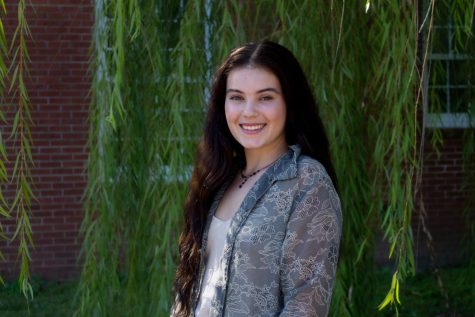

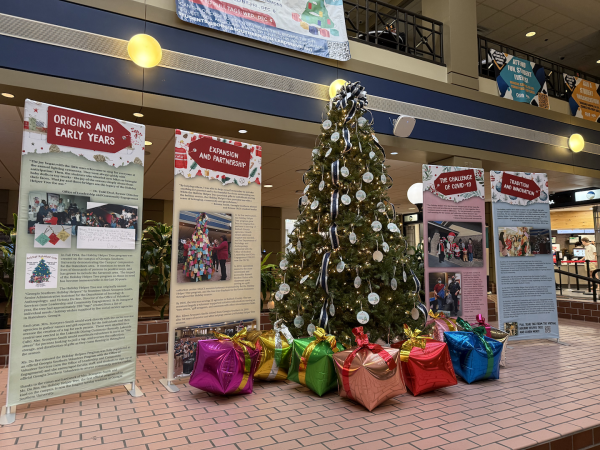
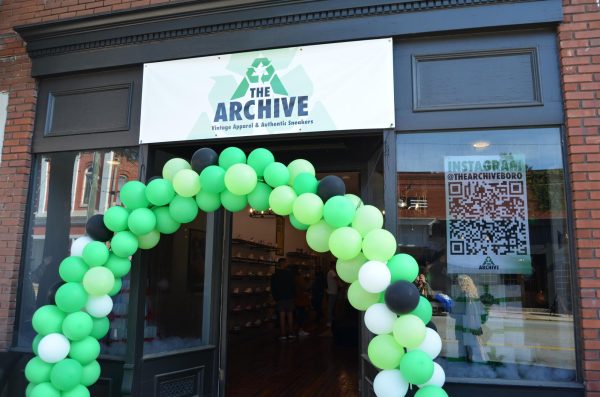
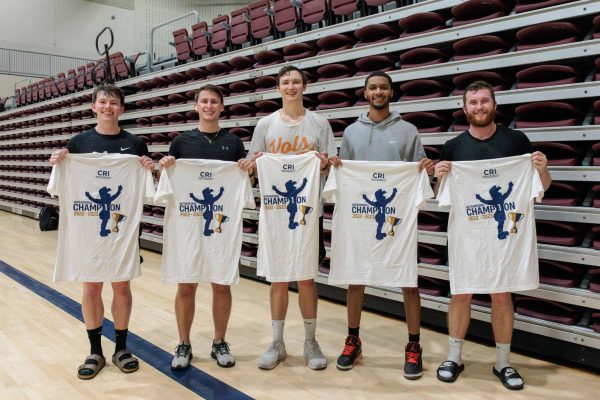

Stephen • May 22, 2023 at 10:01 am
This is a very good topic because I have several friends that are better after recovery and it won’t ever stop. The urges will always be around and they can’t face it alone. But if we never smoked that first joint or drink alcohol in high school things could of been better. We live in a society people are trying to fit in or were there is bulling going on. That is some causes of people doing alcohol and drugs even though they really don’t help the problem. I was lucky I had a strong will to quit. True friends and family helps also. Along with wanting to quit. As a person that witness a lot of damage and cost I’ll say it’s not worth it. It takes a true friend to tell them if they have a problem.